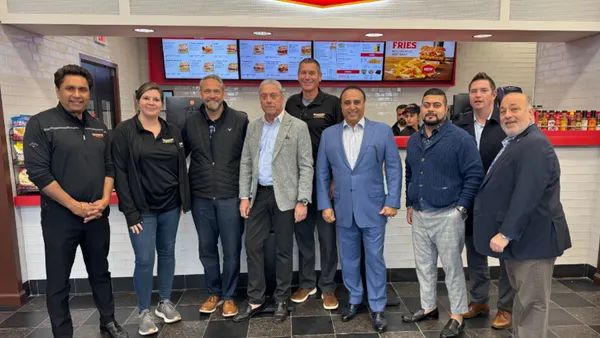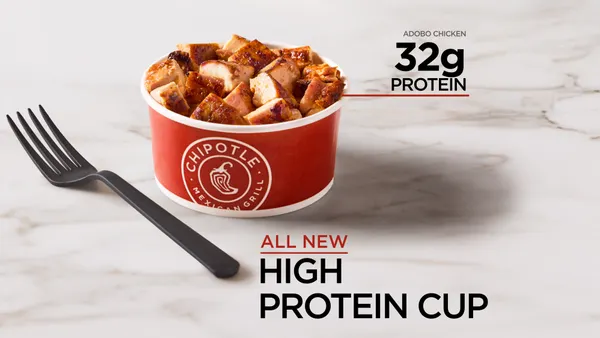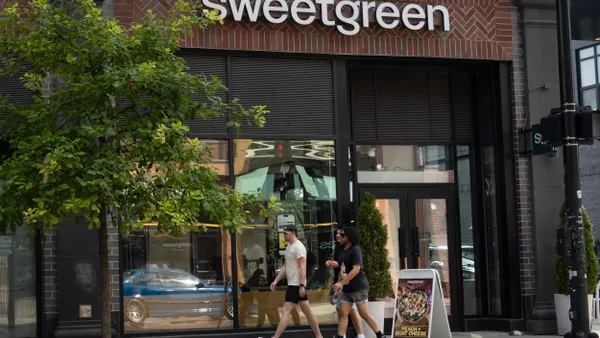Dive Brief:
- KFC has committed to sourcing 100% recoverable or reusable plastics for its consumer-facing products by 2025, expanding an existing plan to develop and improve sustainable packaging, parent company Yum Brands announced Thursday.
- The chain also joined sister brands Taco Bell and Pizza Hut in the NextGen Consortium, a coalition of food companies led by Starbucks and McDonald's dedicated to advancing packaging alternatives.
- The fast food restaurant worked with major suppliers and franchisees to source plastic alternatives in each market, according to the release. The ensuing roadmap begins with an audit of current practices and setting market-specific goals.
Dive Insight:
KFC and Yum Brands have been working to improve sustainability efforts over the last few years joining a growing trend among fast food providers to reduce waste and improve their carbon footprints. KFC previously committed to sourcing 100% of fiber-based packaging from certified or recycled sources by 2020. In 2017 the chain also promised to source chicken, including bone-in, raised without antibiotics commonly used for human medicine by the end of 2018 at U.S. stores — a goal it met in partnership with more than 2,000 U.S. farms, according to QSR. KFC was the last of the top-three chicken restaurants by sales to join the antibiotic-free movement, after Chick-fil-A and McDonald's, Reuters reported.
"As a global brand that operates more than 22,000 restaurants in over 135 countries, KFC is in a position to have a real impact on how the industry approaches waste and packaging management overall," said CEO Tony Lowings in a release.
A few regional operations have already committed to reducing plastic consumption, according to the release. KFC Singapore will cease providing plastic straws and lids in 84 restaurants; Hong Kong and Macau followed suit last August; Romanian and French stores will replace plastic straws with paper; and KFC India will eliminate plastic bags as it transitions to sustainable options for cups, bowls, sporks and straws.
Yum as a whole also vowed to discard palm oil as a cooking oil in its kitchens by the end of 2017, and where not possible would source sustainable versions. Sustainability News thought the move fell short because it didn't involve baked goods and sauces containing palm oil manufactured by third parties.
Nonetheless, the amalgamation of these sustainability initiatives has earned the Yum chain a spot on Dow Jones Sustainability North America Index for two consecutive years.
Yum Brands isn't alone in its sustainability commitments. Within the past year, Starbucks, Hyatt, Marriott and American Airlines have committed or already removed plastic straws, according to CNN Money. Kroger made waves when it announced a 2025 goal to remove plastic bags from all stores, removing 100 billion bags from the ecosystem, Global Citizen reported.
The press is undoubtedly good for the brands, including KFC, making these commitments. A majority of consumers will pay more for fast food sold in sustainable packaging, according to Asia Pulp & Paper’s 2018 trends report, with more than a third willing to spend 35% more. On top of that, 45% of U.S. consumers take sustainability measures into account when choosing a fast food restaurant, but restaurants still lag when it comes to signage and labeling. Customers might be able to toss a recyclable fork in the right bin at the restaurant, for instance, but that utensil could end up in the trash at home.









